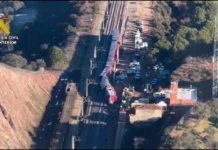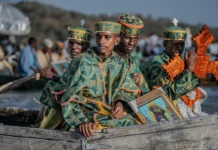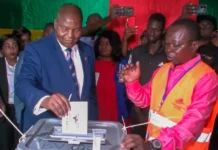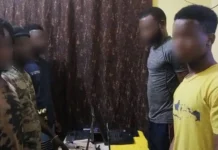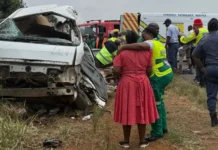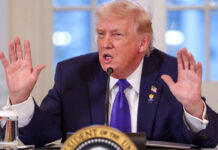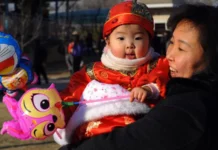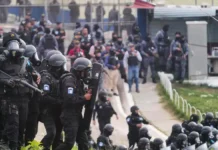
Leaders from Thailand and Cambodia arrived in Malaysia on Monday for high-level talks aimed at brokering a ceasefire, as deadly clashes along their shared border entered a fifth consecutive day. The emergency meeting, convened by Malaysian Prime Minister Anwar Ibrahim, comes amid mounting international concern over the escalating violence between the two Southeast Asian neighbors.
A senior Malaysian official confirmed that the talks were taking place in Putrajaya, the nation’s administrative capital, with the participation of both Cambodian Prime Minister Hun Manet and Thailand’s acting Prime Minister Phumtham Wechayachai. Also in attendance were the ambassadors of the United States and China, underscoring the global urgency to resolve the conflict. The talks are being hosted at Prime Minister Anwar’s official residence, in his capacity as chair of the regional bloc ASEAN.
The border clashes, which began last Thursday, have quickly spiraled into the deadliest confrontation between Cambodia and Thailand in over a decade. Both nations have accused each other of initiating the violence, with each side exchanging heavy artillery fire across multiple flashpoints along their 817-kilometer (508-mile) land border.
Cambodian Prime Minister Hun Manet, who has consistently called for de-escalation, emphasized the purpose of the talks was to achieve an immediate ceasefire. “The purpose of this meeting is to achieve an immediate ‘ceasefire’, initiated by President Donald Trump and agreed to by the Prime Ministers of Cambodia and Thailand,” Hun Manet stated in a post on X (formerly Twitter) before departing for Malaysia. He noted that the negotiations were co-organized by Malaysia and the United States, with China also participating in the diplomatic efforts.
Former U.S. President Donald Trump, speaking on Sunday, said he had pressured both leaders to pursue peace by warning he would block any trade deals with their countries unless hostilities ceased. “Both want to end this,” Trump claimed, referencing private conversations with the Southeast Asian leaders.
Despite the diplomatic push, skepticism remains high. Thai Prime Minister Phumtham Wechayachai expressed doubts about Cambodia’s intentions ahead of the meeting. “We are not confident in Cambodia; their actions so far have reflected insincerity in solving the problem,” he told reporters. “Cambodia has violated international law, but everybody wants to see peace. Nobody wants to see violence that affects civilians.”
Cambodia has vehemently denied Thailand’s claims, instead accusing Thai forces of targeting civilians and calling for international condemnation of what it describes as acts of aggression. The Cambodian government maintains it has only responded defensively and continues to urge the global community to hold Thailand accountable.
Tensions have been steadily mounting since late May, when a Cambodian soldier was killed in a brief border skirmish. The incident prompted both nations to bolster military presence along contested areas, triggering a diplomatic standoff that has shaken Thailand’s fragile coalition government and sparked fears of broader instability in the region.
Prime Minister Anwar Ibrahim swiftly offered Malaysia as a neutral ground for dialogue following the outbreak of full-scale conflict. Both China and the United States endorsed the initiative, reflecting their shared interest in containing potential spillovers in Southeast Asia and maintaining regional stability.
As negotiations continue in Putrajaya, international observers are cautiously optimistic that diplomacy may yet prevent further bloodshed. However, deep mistrust and entrenched narratives on both sides suggest that a sustainable resolution will require more than a single round of talks.
Written By Rodney Mbua









